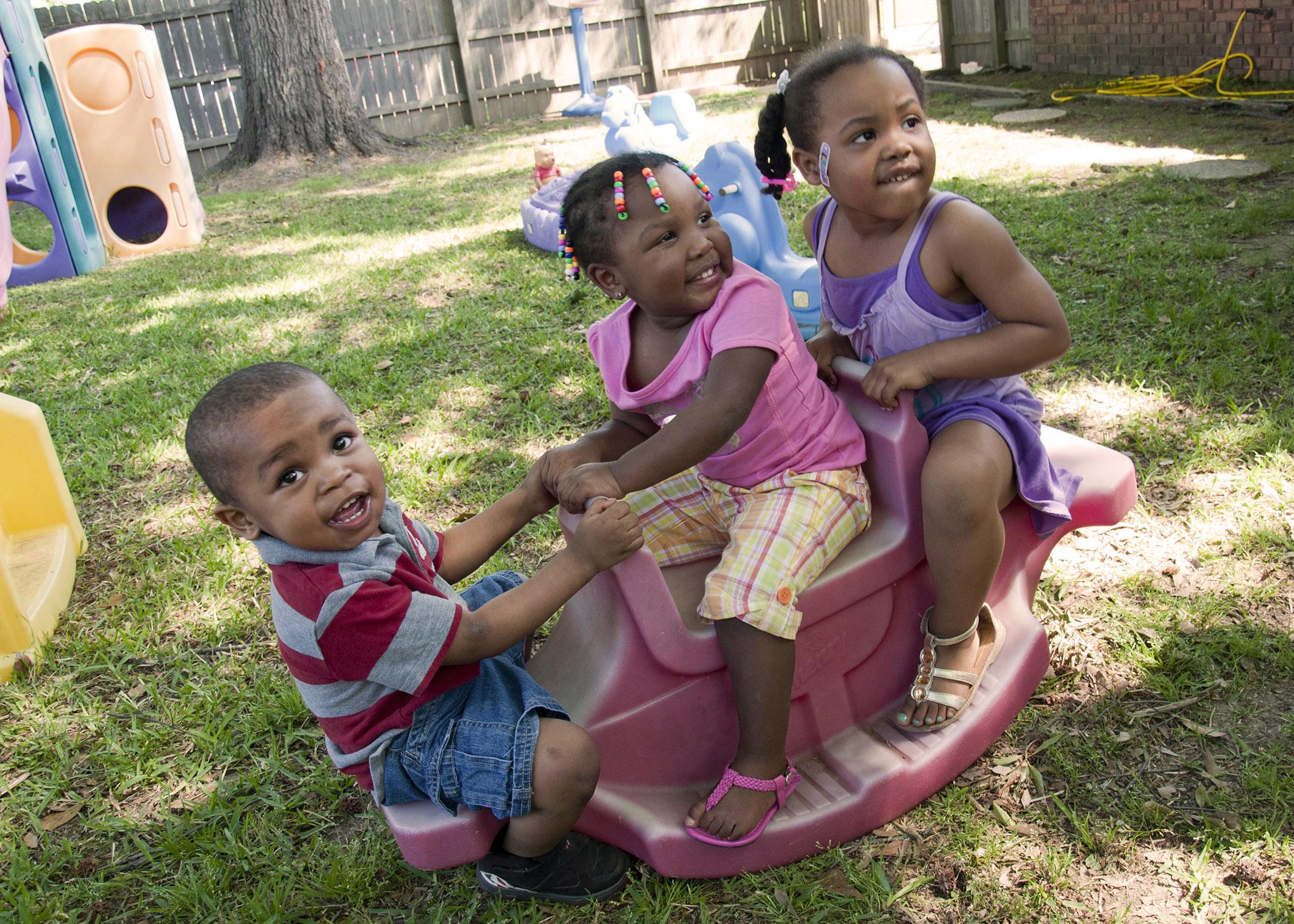Information Possibly Outdated
The information presented on this page was originally released on August 6, 2014. It may not be outdated, but please search our site for more current information. If you plan to quote or reference this information in a publication, please check with the Extension specialist or author before proceeding.
Simple precautions make outdoor play safer for kids
MISSISSIPPI STATE -- Summer means fun in the sun, but young children need extra protection against the dangers associated with being outside too long.
With average summer temperatures in Mississippi in the 90s, safety precautions are required to protect children while they play.
“Because children can get overheated so quickly, parents and caregivers need to be mindful of some of the dangers associated with the sun and heat during summer months,” said Jamila Taylor, registered nurse and project director with the Early Years Network, a system of support services provided by the Mississippi State University Extensions Service and their partners. “Kids are playing and so focused on the activity that they forget to do simple things, like wear sunscreen and drink water,” Taylor said. “Providers and parents must make sure children stay hydrated and apply -- then reapply -- sunscreen.”
The sun’s rays are the strongest in June, July and August. Anyone out in the sun should wear at least 30 SPF-rated sunscreen to prevent sunburn and skin damage. Sunscreen should be applied at least 15 minutes before going in the sun and reapplied at least every two hours.
“Infants under 6 months of age should not wear sunscreen, but instead should be covered with a hat or light blanket if exposed to the sun,” Taylor said. “For anyone over six months old, be careful to remember areas such as lips, face, neck, tops of feet and under straps when applying sunscreen. Sunglasses are also helpful to protect against sun damage.”
In addition to the threat of sunburn, heat exhaustion is a leading cause of death during these hotter months, especially among the young and elderly.
“Remembering to drink plenty of water before, during and after outside activity is vital,” Taylor said.
Limit outdoor activity to 30 minute stretches.
Adrienne Mercer, a project director with the Early Years Network, said scheduling outdoor activities during the cooler times of the day will help reduce heat-related illness.
“Ball games or other outdoor sporting activities should be scheduled before 10 a.m. or after 4 p.m. when the sun is not at its strongest,” Mercer said. “Yard work, like mowing the lawn or gardening, can also be done in the morning or evening and in increments instead of all at once to avoid exhaustion.”
Signs of heat exhaustion or heat stroke include red, hot skin and an elevated temperature, dizziness, headache, nausea or disorientation. If any of these symptoms occur, the Mississippi State Department of Health recommends getting out of the sun immediately, drinking water and seeing a doctor if symptoms persist.
Summer outdoor play often involves playground equipment. Mercer said adults should check the equipment before allowing children to play on it.
“The sun can heat a metal slide or monkey-bars hot enough to burn the skin, and it happens very quickly,” she said. “Caregivers need to caution children and watch for extremely hot playground equipment and for equipment that may be in disrepair. Anything loose or poking out on equipment can cause serious injury to children.”
Remind children to follow playground rules, use the equipment properly and pay attention to where other children are when playing around them.
“Roughhousing on climbing equipment, sliding head-first or swinging too high are dangerous ways to behave on a playground,” Mercer said.
Caregivers must always be attentive, and children should know where the adult is at all times.
The Early Years Network is a program of the MSU Extension Service and receives funding from the Mississippi Department of Human Services’ Division of Early Childhood Care and Development. It provides parent education programs and materials for children and families to improve the well-being of Mississippi’s children.





